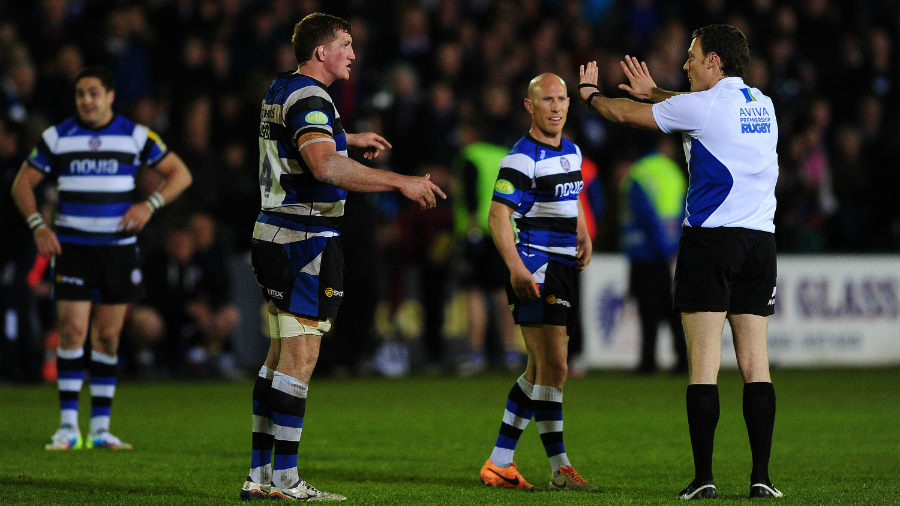|
Rules
Cricket-style review system on the cards
ESPN Staff
September 12, 2014

Arguments would still rage under the new system but the onus to challenge would pass to teams © Getty Images
Enlarge
SANZAR, the organisation which oversees Super Rugby and the Rugby Championship, plans to introduce a cricket-style decision review system from 2016. The news comes in the aftermath of poor refereeing performances from George Clancy and Pascal Gauzere during last weekend's Tests, the nadir being when Gauzere wrongly disallowed a try by Leonardo Senatore after he charged down a kick from the All Blacks' Ma'a Nonu and scored. Getting it right
© Getty Images
SANZAR is locked into refereeing protocols which last until after the 2015 Rugby World Cup but it is being reported that after that the new system will be trialed. The details have yet to be confirmed but it is reported that each team will be allowed as many as three referrals but, as with other sports, will not use up one of their appeals if their challenge is successful. An article in the Australian said that one other area where there is uncertainty is regarding who makes the appeal. In cricket it is the captain, but the pace and nature of the game means he is almost always in a good position to take the call. In rugby, the captain may be unsighted or a long way away from an incident. That raises the possibility of the coach on the sidelines lodging the appeal, but he is in contact with other backroom staff who will almost certainly have the benefit of access to TV pictures and so be able to make a decision to pass on to him. This is all the more likely in a game where the incident being investigated could have happened up to a minute earlier. An appeals system would also have to introduced in conjunction with a downgrading of the role of the TMO. It would put much of the on-field decision-making back in the hands of the referee with the onus on teams to decide if they feel an appeal is warranted. Australia coach Ewen McKenzie was in favour of the move but warned about the potential for constant interruptions. "I'm mindful of how much dead time there is in a game," he told the Australian. "If you challenge the call and get it right you can challenge again and theoretically you could have 20 challenges. "People want to be entertained, they want to be kept entertained, they don't want to be sitting there watching replays. I don't know the solution but it is interesting they at least are having the conversation." © ESPN Sports Media Ltd
|
Live Sports
Communication error please reload the page.
-
Football
-
Cricket
-
Rugby
-
- Days
- Hrs
- Mins
- Secs
F1 - Abu Dhabi GP
Abu Dhabi Grand Prix December 11-131. Max Verstappen ()
2. Valtteri Bottas (Mercedes)
3. Lewis Hamilton (Mercedes)
4. Alexander Albon ()
5. Lando Norris ()
6. Carlos Sainz Jr ()
-
ESPNOtherLive >>
Darts - Premier League
Golf - Houston Open
Snooker - China Open
Tennis - Miami Open

